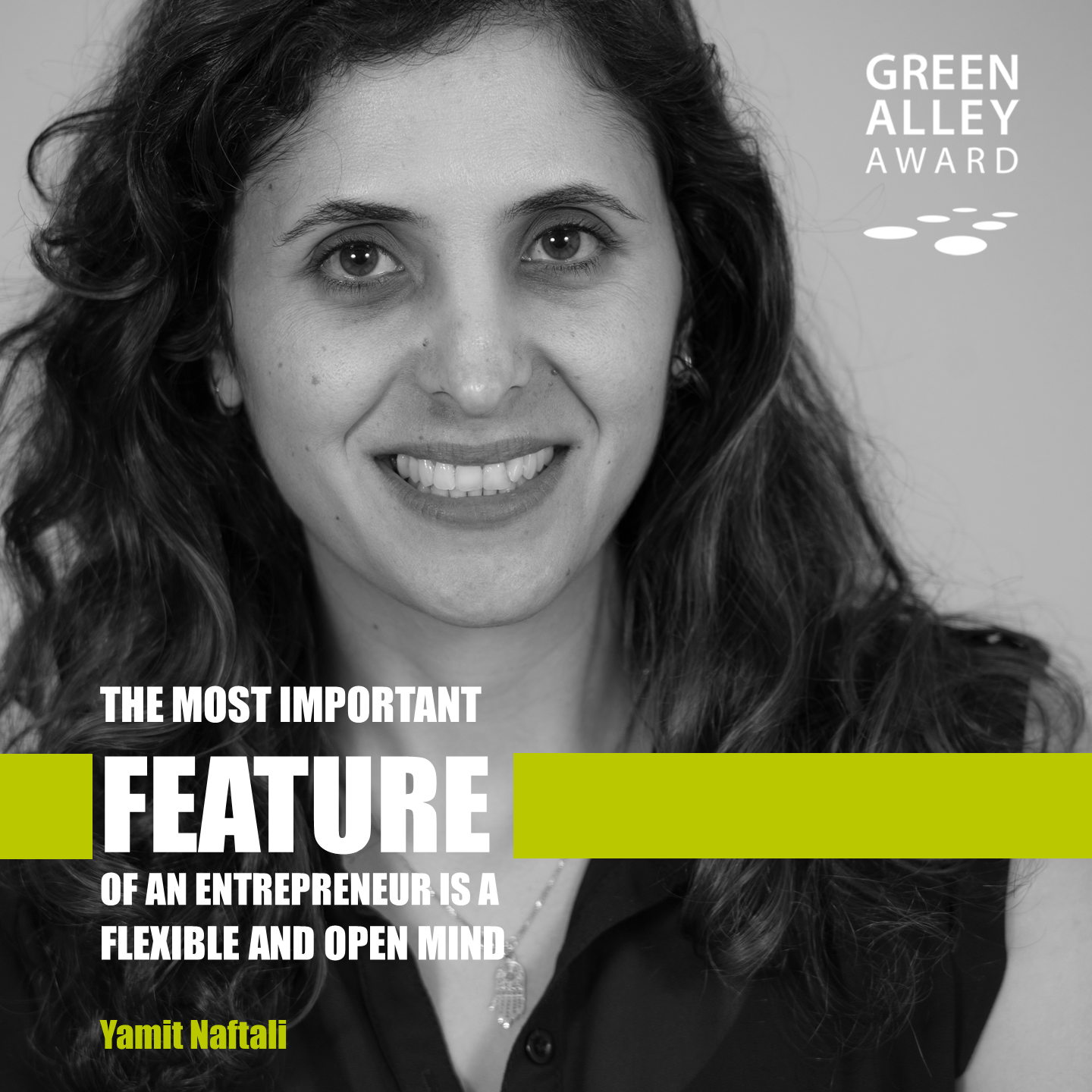
Meet our experts! Today: Yamit Naftali!
Our startups are, of course, experts for the circular economy. Nevertheless, they could also profit from exchange with other experts. That's what we are offering our Green Alley Award finalists in our so-called expert sessions! In these sessions, #circulareconomy as well as #startup experts provide hands-on advice and the startups will get the possibility to enlarge their network and to profit from knowledge of other experienced professionals.
Read today's interview in which we introduce you to Yamit Naftali. She is the Director of Business Development and Strategy at Homebiogas and has a high expertise in designing circular economy business models and business development strategies. Keep on reading to find out more about her and what makes her a great expert and advisor for our Green Alley Award 2022 finalists!
What is your professional background and how will it help you to be a startup advisor for the Green Alley Award finalists?
Currently I am the Director of Business Development and Strategy at the Israeli high-tech company Homebiogas. In this position, I am responsible for identifying and creating new collaborations with partners in the US and EU. Thus, my professional background and connection can help new startups by identify the right opportunities for them. In addition, my experience in consulting firms with regard to their business models, most notably helping them to design and implement new Circular Economy Business Models (CEBMs) for their company's products, would benefit new startups who are striving to grow by adopting appropriate, sustainable business models. This experience permits me to advise startups on refining their business models and operational strategies. Moreover, in my position as head of International Research at The Jerusalem Institute for Policy Research I have gained an in-depth policy understanding, especially within the realms of Circular Economy (CE), waste treatment, new energy and water innovation. With this knowledge, I can help startups identify the newest and best opportunities, as policy is both the greatest enabler and barrier for innovation.
Most of the things you have to consider when starting a business, you don’t learn in any school. So, generally speaking, in what way could entrepreneurs profit from mentors or advisors like you?
Having a great idea without understanding the market and its regulations affecting a product limits the potential of a startup. To succeed, a startup must have a strong value proposition with the right business model and an appropriate solution that meets regulatory requirements. Moreover, startups differ from mature companies in the way they act. Throughout the years that I have been researching the high-tech market in Israel, I have learned about many of the most important considerations affecting startup decision making and the factors leading to success. This understanding combined with my economic and strategic skills, developed while working with different companies in different sectors, has built my capacity for asking the right questions, identifying barriers that need to be removed and designing the leverages that best suit a specific startup’s characteristics.
When founding a startup one can have the perfect idea and the best conditions but still fail to be successful. As execution is key, what are you as an expert looking for in an entrepreneur, his team and his business idea?
The most important feature for an entrepreneur is a flexible and open mind – knowing to listen and to embrace other new ideas, while adapting to changes in business and policy. Some entrepreneurs stick to their original idea and ignore the changes that need to be made to enable their products and services to integrate in the market. For this to happen, entrepreneurs must appreciate the experience and mindsets of others with knowledge of the market.
The Green Alley Award is all about circular startups. In your opinion, which are the key challenges for a circular economy in Europe?
The first key challenge is the heterogeneous nature of EU Policy application in EU member states. This makes it difficult to replicate and expand Circular Economy Business Models internationally. For example, the existence of different standards and requirements make it difficult to capture the economic value of reused or recycled products.
The second key challenge rests on the consumer side: The lack of public awareness to circular sourced products, as well as negative perceptions of the quality of recycled or “second-hand” products makes it difficult for these products to make an impact in the market. The result is that many companies do not want to invest in sustainable products.
If you had the chance to start your own business, what kind of startup would it be?
My startup would be to develop an app that shows in a simple way the environmental footprint of every public company (using Life Cycle Analysis for its products and services) so that a price could be estimated for this footprint. In this way, consumers could easily understand the negative impact of different companies and their products, which will encourage them to consume in a sustainable way. This, of course, will also encourage companies to expand their offerings of sustainable products.